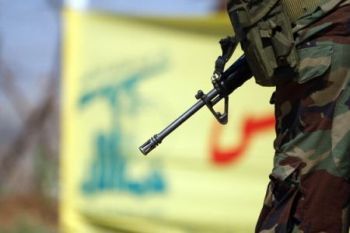
Publisher:
Bonnie King
CONTACT:
Newsroom@Salem-news.com
Advertising:
Adsales@Salem-news.com

~Truth~
~Justice~
~Peace~
TJP
May-28-2012 23:29

 TweetFollow @OregonNews
TweetFollow @OregonNews
Lebanon On the Brink (II of II)
As'ad AbuKhalil Special to Salem-News.comThe plan of sectarian agitation by Sunnis against the Shia was the product of a US-Saudi plan to isolate Iran and Hezbollah, and to divert the attention (and hostility) of Arabs away from Israel toward Iran.
 Courtesy: Press TV |
(BEIRUT) - The current crisis in Lebanon – like all crises in Lebanese contemporary history – has domestic and foreign dimensions. Typically, the domestic dimensions have foreign connections, and vice versa.
It would be unfair to maintain that the incompetent leadership of Saad Hariri has been largely responsible for this crisis because the man has been merely implementing policies that originate in Washington and Riyadh. His father, like him, was a mere tool of foreign powers (primarily to Saudi Arabia, Syria, France, and the US, but his loyalty to the House of Saud superseded his other loyalties).
Rafik Hariri was able to negotiate with his patrons in order to adjust to the domestic settings in Lebanon. Saad Hariri knows little about a country that he was assigned to lead by an order from the House of Saud. But the policies of Saad were delivered to him from Riyadh and Washington.
The plan of sectarian agitation by Sunnis against the Shia was the product of a US-Saudi plan to isolate Iran and Hezbollah, and to divert the attention (and hostility) of Arabs away from Israel toward Iran.
The plan intensified in Lebanon after 2006 when Israel failed to defeat and disarm Hezbollah. Israel needed another shot at Hezbollah: the clients of US-Saudi Arabia have been furthering Israeli interests since the assassination of Rafik Hariri (there is always a side in the Lebanese conflict that is aligned openly or covertly with Israel).
The plot was to sponsor a sectarian Sunni campaign against Hezbollah. Within a year or two (and even before 7 May 2008, which has been turned by Hariri propaganda into a day of horrors that Lebanon has not witnessed the likes of which in its history), Jeffrey Feltman and Prince Muqrin in Saudi Arabia (the intelligence chief) thought that they stumbled on a brilliant plan to undermine Hezbollah’s bases of support.
The plan did succeed. Within a couple of years, Sunni public opinion turned against Hezbollah and Hassan Nasrallah. But the plotters did not anticipate the consequences of their actions. The Shia felt threatened and they solidified their support for Hezbollah, and the sectarian agenda of the Hariri camp gave the Shia no space for non-Hezbollah Shia (despite the comical efforts of the US embassy and Saudi intelligence to sponsor “moderate Shia” – people who have no standing within their communities, and often were no more than crooks looking for easy money).
The other consequence of the sectarian plot was that the logical power base for the sectarian agenda were none other than fanatical Sunni (Jihadi) Salafi groups. Groups that were instrumental in sending volunteers to join Al-Qaeda in Iraq were now active in the Hariri camp and receiving US/Saudi money (and arms in some cases).
But the Salafi camp was restless in the Hariri camp. They wanted a more aggressive agenda in Syria and wanted a military involvement. Furthermore, Saad Hariri could not appeal to the poor Sunni base because he only remembers the people of Tripoli, Akkar, and the Bekaa once every four years during election time.
The base turned more into a radical Salafi direction, and Hariri has been out of the country for more than a year now. Local Salafi extremists controlled the Sunni “street” and they were (like the militant Bin Ladenite MP, Khalid al-Daher) receiving Saudi funding directly from Prince Muqrin, without having (like before) to go through the Hariri office which monopolized funding for the pro-Saudi groups in Lebanon. This decentralization allowed for local militant leaders to appeal to the unemployed poor youths in Akkar, Tripoli, and the Bekaa.
But it would not be fair to blame the Hariri camp for sponsoring those militant trends. Hariri rivals in Tripoli (namely Najib Mikati and Muhammad Safadi who both suffer from lack of charisma and from awkward social skills with the masses) sought to gain additional electoral support by funding those militant Salafi trends.
It is possible that the Salafi movement is now not only getting out of control (the control of the Hariri camp, that is), but it may be also abandoning the Saudi cause (while receiving money from Saudi Arabia and Kuwait). It may not be far fetched to imagine a situation where Al-Qaeda recruits head for North Lebanon to receive military training. In fact, this may be happening already with some groups from Syria receiving their training in Akkar.
The recent skirmishes between armed Salafi groups and the Lebanese Army may have been aimed at pushing the Lebanese Army out of the area to obtain political and military freedom. It could only get worse. Nasrallah is effective in restraining the Shia youth, but the public is boiling with anger, and the Amal movement is much more effective in sectarian clashes and thuggery than Hezbollah. Amal may be gaining ground.
Al-Akhbar English, english.al-akhbar.com/blogs/angry-corner/lebanon-brink-ii-ii
 |
 |
 |
 |
 |
 |
 |
Articles for May 27, 2012 | Articles for May 28, 2012 | Articles for May 29, 2012
Salem-News.com:





Terms of Service | Privacy Policy
All comments and messages are approved by people and self promotional links or unacceptable comments are denied.
[Return to Top]
©2026 Salem-News.com. All opinions expressed in this article are those of the author and do not necessarily reflect those of Salem-News.com.